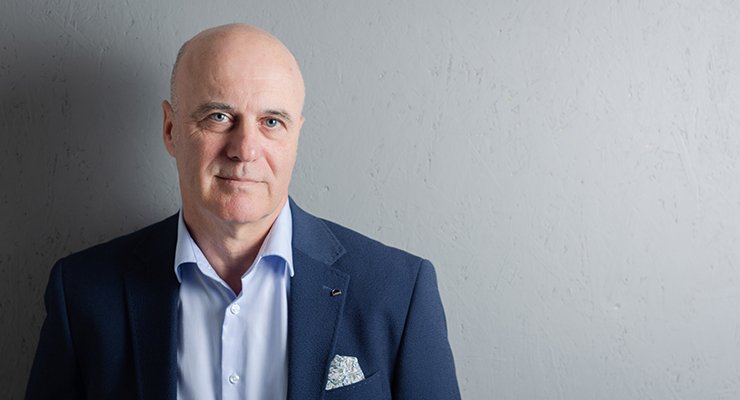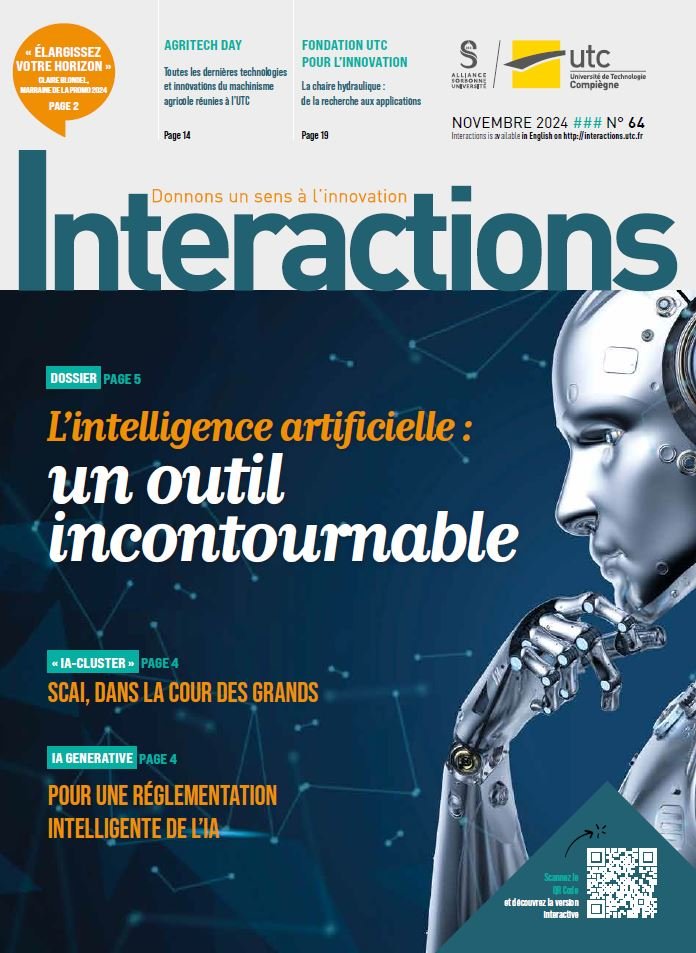Erasmus Mundus for UTC

Professor Dritan Nace works at the Department of Computer Engineering within the UTC-Heudiasyc laboratory. Since 2017, he has been responsible for the Labex Master’s degree in ‘complex systems engineering’, as well as the ‘systems learning and optimisation’ pathway. He is currently coordinator of the Erasmus Mundus programme in sustainable systems engineering (EMSSE).
In 2017, the «Complex Systems Engineering» Master’s degree was restructured with the aim of giving it greater visibility among UTC students while continuing and accelerating the implementation of double degrees with foreign academic partners. This was done first with the University of Genoa (UNIGE) in Italy in 2016, then with the Polytechnic University of Tirana (UPT) in Albania in 2019 and finally with the Polytechnic University of Catalonia (UPC) in Spain in 2021. These double degrees were made possible by the introduction of Erasmus and Erasmus Plus Mic by the European Union (EU). The former is designed to encourage the mobility of EU students, the latter to encourage the mobility of non-European students within EU universities.
On the strength of this experience, the four partners decided to join forces and propose the «European Master in Sustainable Systems Engineering» (EMSSE) project. “This Erasmus Mundus programme was initially led by the Italians. «The project that the Italians led for three years, although well rated, did not come to fruition. This was probably due to the juvenile age of the double degrees. In any case, in 2022, together with our partners, we restructured the project and, in agreement with them, it was the UTC that successfully led the project, financed by nearly 5 million euros by Europe for a period of six years and including 4 classes of students. This funding is used in particular to award grants, more than two-thirds of which are reserved for students from outside Europe. The Erasmus Mundus programme is so selective that no more than thirty students are enrolled each academic year. In this respect, it can be said that Erasmus Mundus is a showcase for European higher education on a global scale. Hence the hope of its initiators that it will become a permanent feature,» says Dritan Nace.
What does EMSSE involve? «The EMSSE is built around three flagship Masters courses at each university: Learning and Optimisation of Systems (AOS) at UTC, System of Systems Engineering (SOSE) at UNIGE and Advanced Manufacturing Systems (AMS) at the University of Catalonia. The course, which is taught in English and will start in autumn 2024, will focus on the engineering of sustainable systems that are efficient, economical and environmentally friendly. In short, engineering that takes into account the environmental, economic and social impacts of a system before and during its design, operation, maintenance and finally its end-of-life phase. The aim is that, at the end of the two-year Master’s degree course, students will be awarded a university degree that is shared by all the academic partners involved,» he explains.
The special feature of an Erasmus Mundus programme is the mobility requirement.
How does the EMSSE academic programme work? «The special feature of an Erasmus Mundus programme is the mobility requirement: students enrolled on a course must spend the first year with academic partners and the second year at the university offering the specialism. For our part, we have decided to leave students free to choose their place of study for the first semester of Master 1, but that all students must attend the Polytechnic University of Tirana for the second semester, where courses will be taught by professors from the four universities», explains Dritan Nace.
The consortium formed by the UTC and its academic partners includes three official associate partners. These are Aise-Incose, the largest engineering association in Italy; Ikerlan, a centre specialising in industrial digitalisation, in Spain; and Savoye in France, a company specialising in supply chain systems management, with a strong interest in the deployment of concrete, sustainable CSR policies. To date, these official associate partners have been joined by a number of industrial partners: Renault, Saint Gobain, Voltalia, Orange, Delmon Group, CEA and Leonardo, a group specialising in space and defence technologies in Italy. Finally, the SNCF and Suez Smart Solutions in France, both longstanding partners, have expressed an interest in the network.
What is the role of these industrial partners? «They have two major roles. The first is to advise us on training and how to adapt it to the challenges they may face. The second concerns the more practical and professional aspects of the students’ course. They can welcome students for work placements in their final semester of study,» he concludes.




